Civic Engagement 4.0: Training of Trainers for Engaged Social Service in a Borderless World
Photo credit: https://inebinstitute.org/senslibretto/
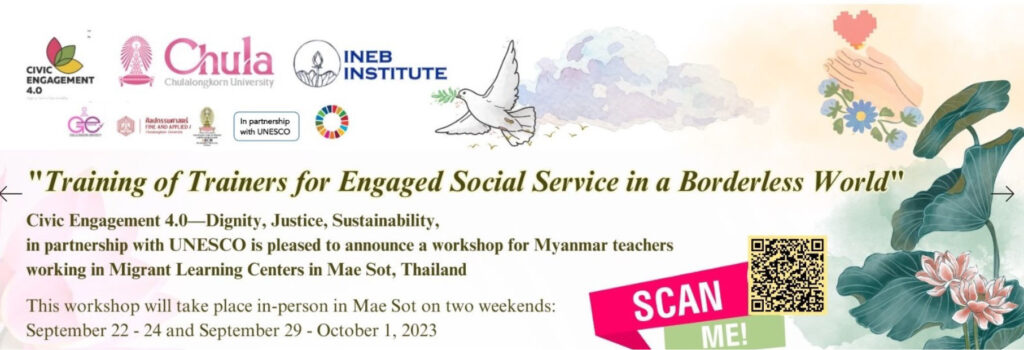
Innovative program for displaced teachers from Myanmar
The decades-long conflict in Myanmar has resulted in a chronic refugee crisis, which has been exacerbated since the 2021 military coup. To escape the relentless and increasing violence, thousands of people have sought refuge in Thailand since 2021, establishing temporary homes along the border. Tak Province hosts the largest refugee camp in Thailand. However, many of those who have fled the conflict in Myanmar also live outside the camp without legal documentation. These forcibly displaced people continue to grapple with restrictions on their movements and limited access to formal employment, quality healthcare, and further education, while not knowing when they can return to their country.
Scoping mission
A team of Civic Engagement 4.0 conveners conducted a field visit to the town of Mae Sot in Tak Province from June 24 to 27, 2023, with Assoc. Prof. Naruemon Thabchumpon, Director of the Asian Migration Studies Center at the Institute of Asian Studies of Chulalongkorn University, as the team leader. Civic Engagement 4.0 is a regional platform that was convened by a group of concerned individuals from various geographical, professional, cultural, and disciplinary backgrounds who are experienced in civic engagement and working toward a more sustainable society. Throughout the visit, the team engaged in intensive dialogue with stakeholders, obtaining first-hand and updated insights via exchanges. During these exchanges, participants brainstormed ideas and deliberated on policy recommendations to address cross-border challenges in the context of the current realities. The team visited several migrant learning centers, international NGOs, a training program by an NPO, and the Tak Immigration Office. The team also had the opportunity to visit the Mae Tao Clinic, a renowned healthcare center offering free medical services to migrant workers and forcibly displaced people crossing the Thailand-Myanmar border. This scoping mission prepared a significant step for Chulalongkorn University to serve as a platform for policy discussions addressing the multifaceted challenges faced by forcibly displaced people, especially in the areas of education.
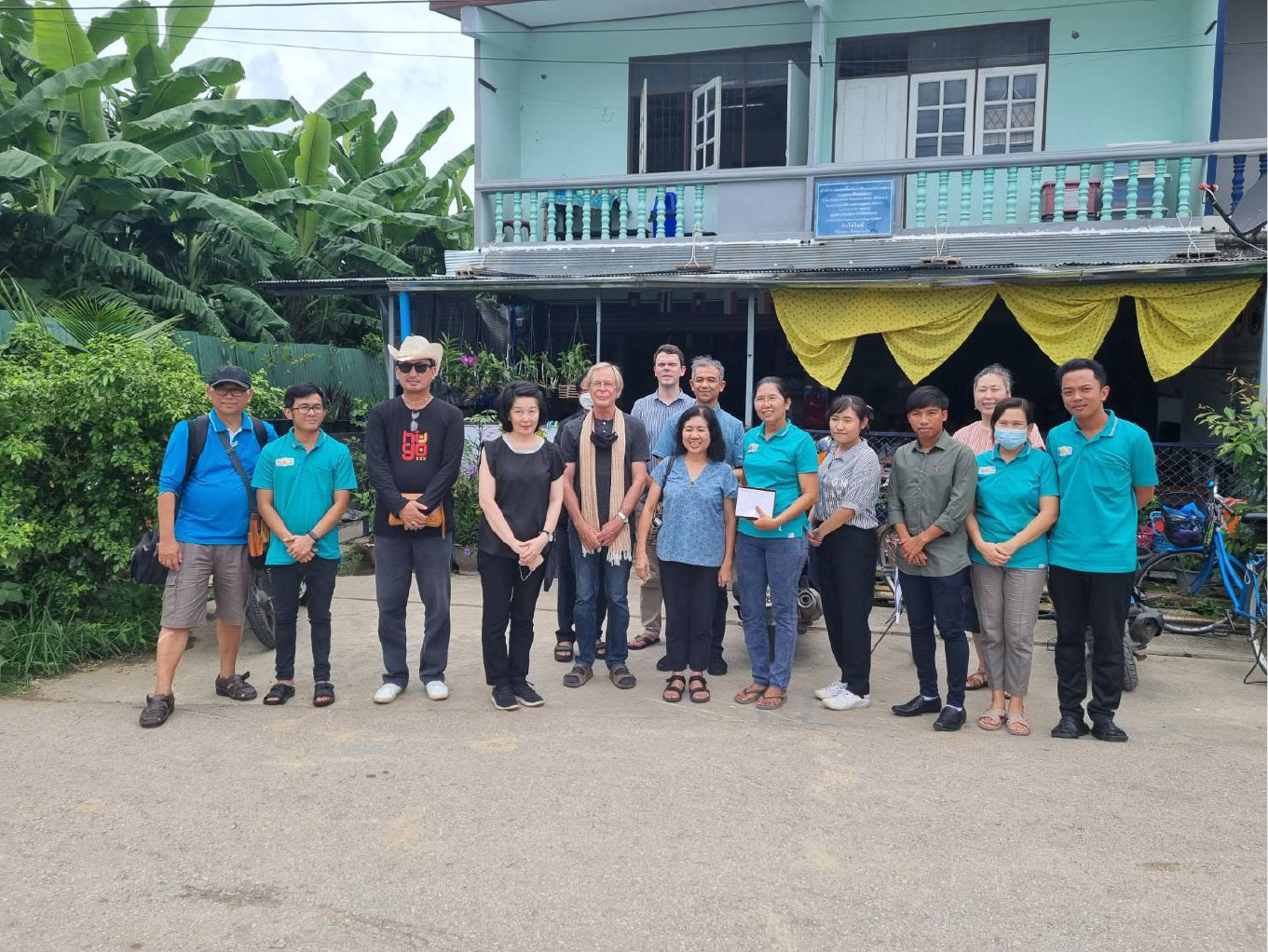
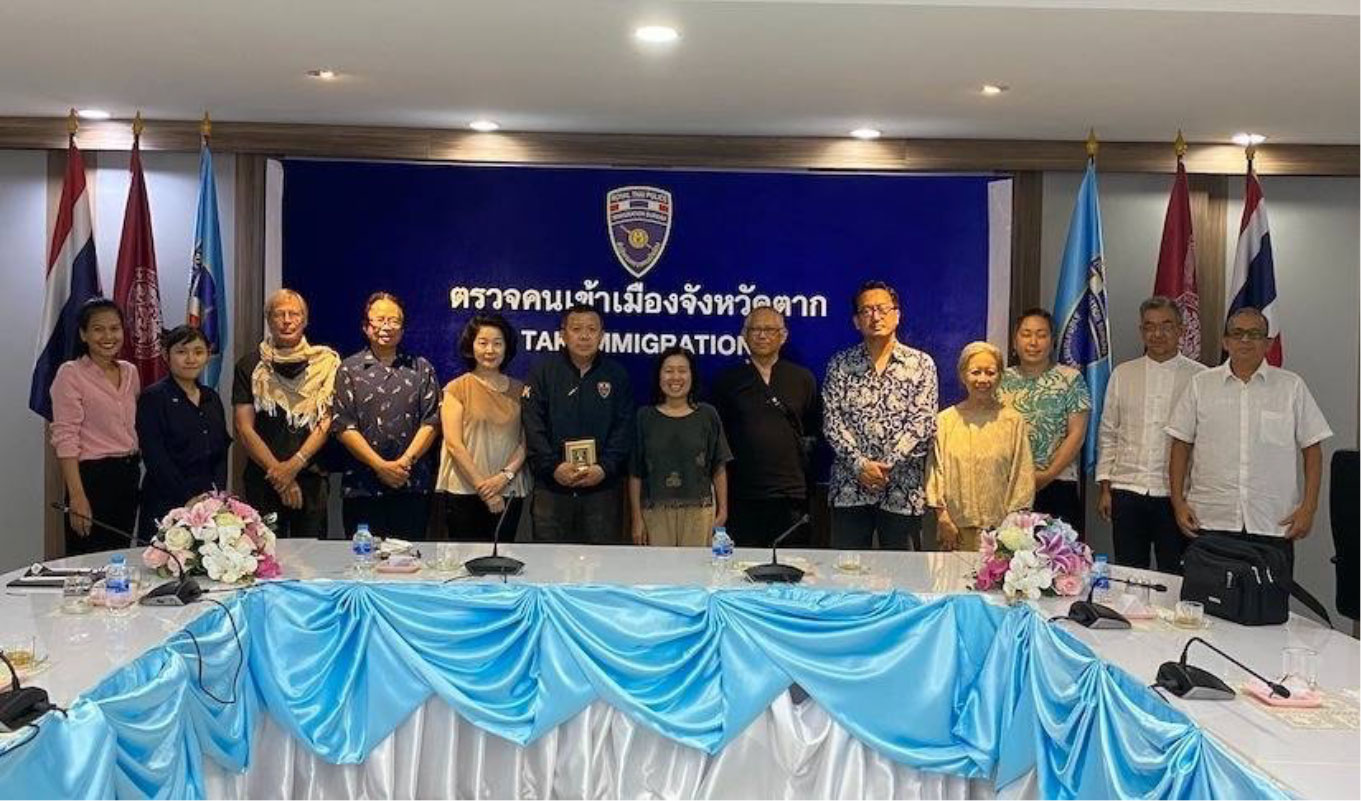
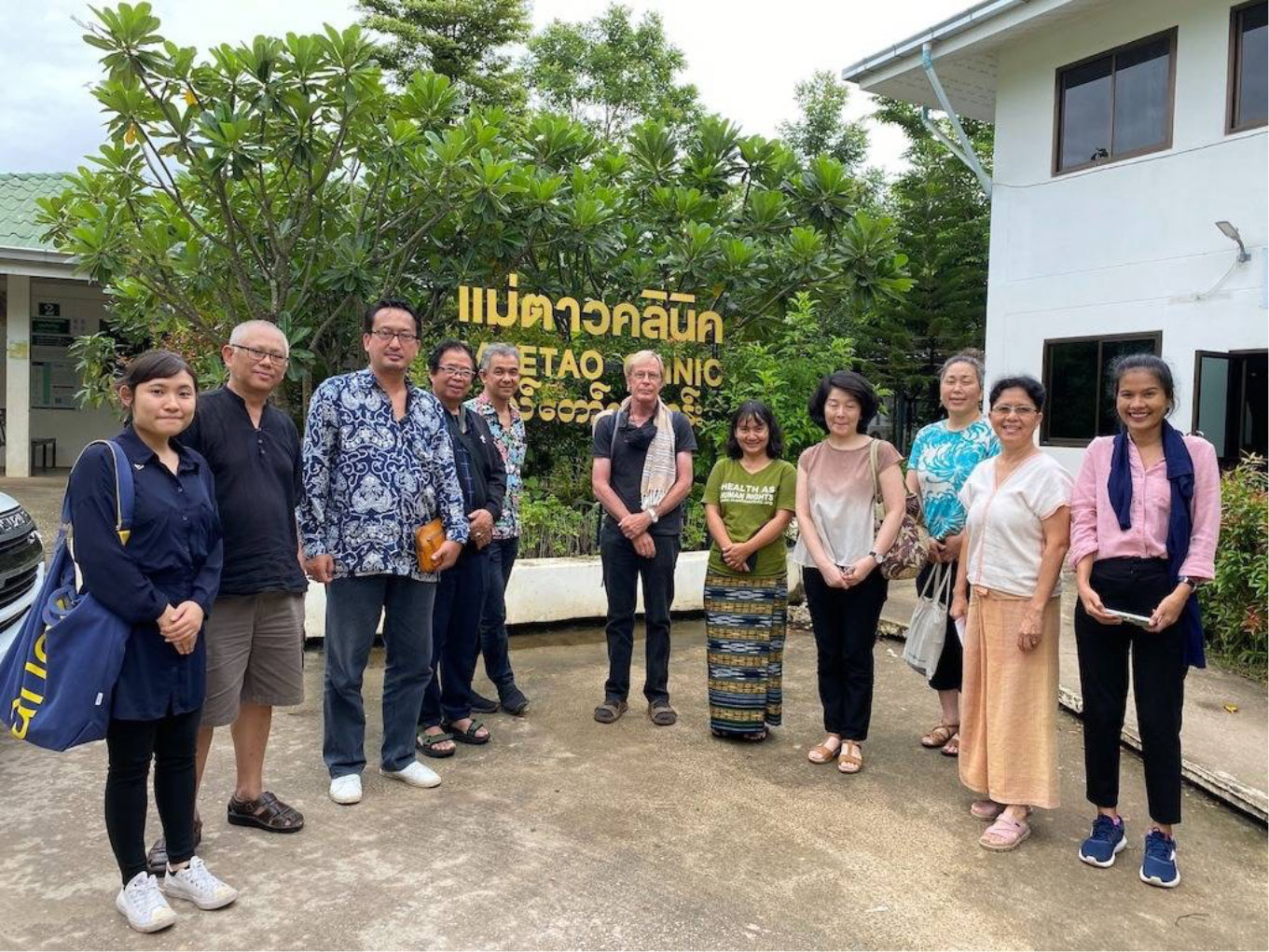
Implementing a pilot program
Recognizing the pivotal role that teachers play in nurturing future generations as well as their tremendous suffering and lack of resources, the team developed a pilot onsite program for Myanmar teachers working in migrant learning centers in Mae Sot. The program, “Training of Trainers for Engaged Social Service in a Borderless World,” builds upon the highly successful English and leadership program of the INEB Institute for Transformative Learning (INEB).
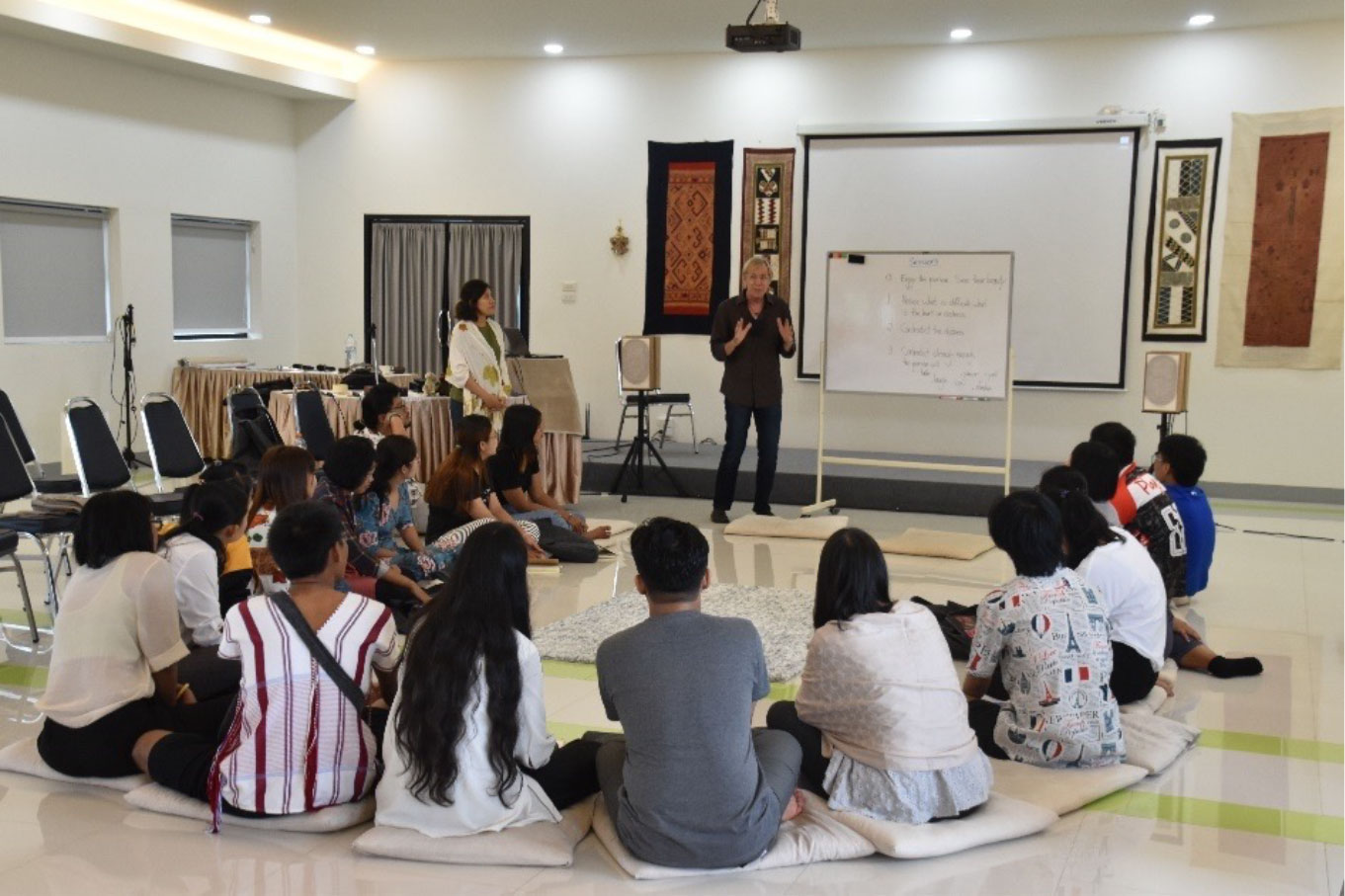
While training the Myanmar teachers, graduates of INEB’s School of English for Engaged Social Service (SENS) provided peer-support in language interpretation, training in listening assistance, companionship-in-the-learning, and reflection. These young leaders, some of them ethnic minorities, were from Myanmar, Thailand, and Vietnam. The young leaders also received more in-depth training through dedicated sessions.
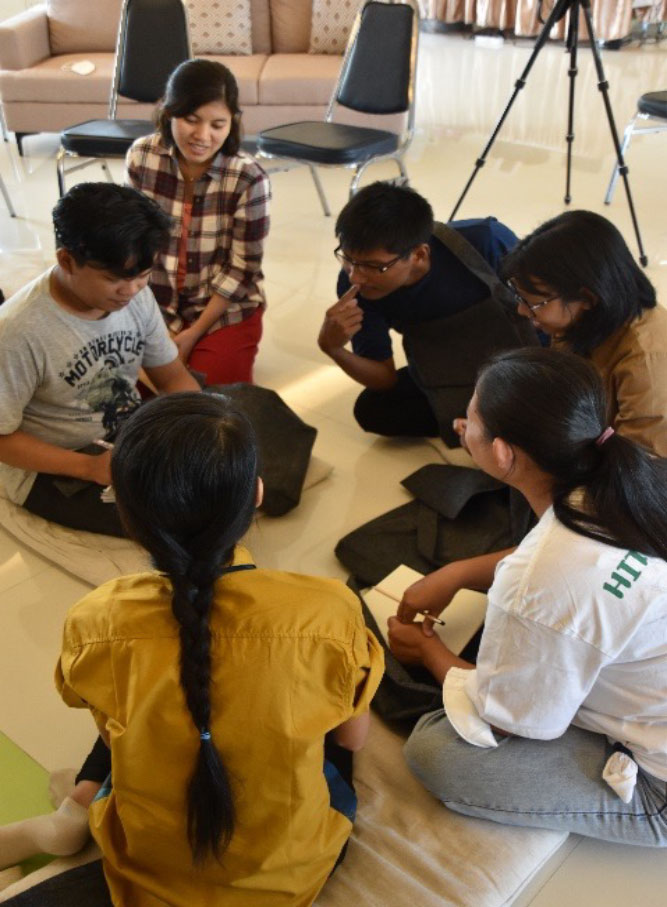
During the training sessions, conducted from September 22-24 and September 29 to October 1, 2023, Myanmar teachers were guided on how to cultivate their students’ intellectual development, social and emotional growth, critical thinking skills, and passion to serve the broader community. The participants learned new and engaging pedagogical approaches as well as tools and practices for mutual support and ongoing learning. The training sessions covered a variety of topics, including, “Principles of Mutual Support”, “Philosophy for Children”, “Empathy, responsiveness, and visionary engagement”, “Youth-led Actions for Community Development”, “One Health”, “Community-based Lifelong Learning and Adult Education”, “Ethics and Peace Education”, “Education, and Development and Civil Engagement”, among others.
Classroom activities were led by Mr. Theodore Mayer from INEB, along with other researchers, scholars, and practitioners from the Chulalongkorn University and Civic Engagement 4.0 network. Contributors were Ms. Rika Yorozu from UNESCO Bangkok, Ms. Pénélope Dufourt, UNESCO Chair for the Philosophy for Children at the University of Nantes, Dr. Mochamad Indrawan, ecologist, and Rev. Prof. Dr. Maung Maung Yin from Fukuoka Seinan University. From Chulalongkorn University, contributors included Assoc. Prof. Dr. Suwithida Charungkaittikul (Director of the General Education Center), Dr. Premjai Vungsriphisal (Deputy Director of ARCM), Dr. Paphutsorn Wongratanapitak (Faculty of Fine and Applied Arts), and Ms. Michiko Yoshida (Director of Global Networking and Engagement).
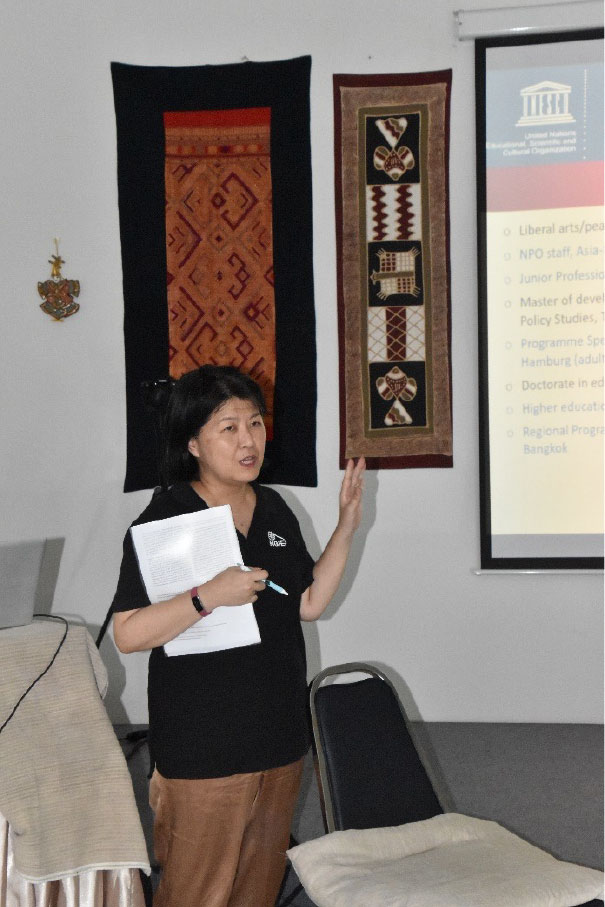
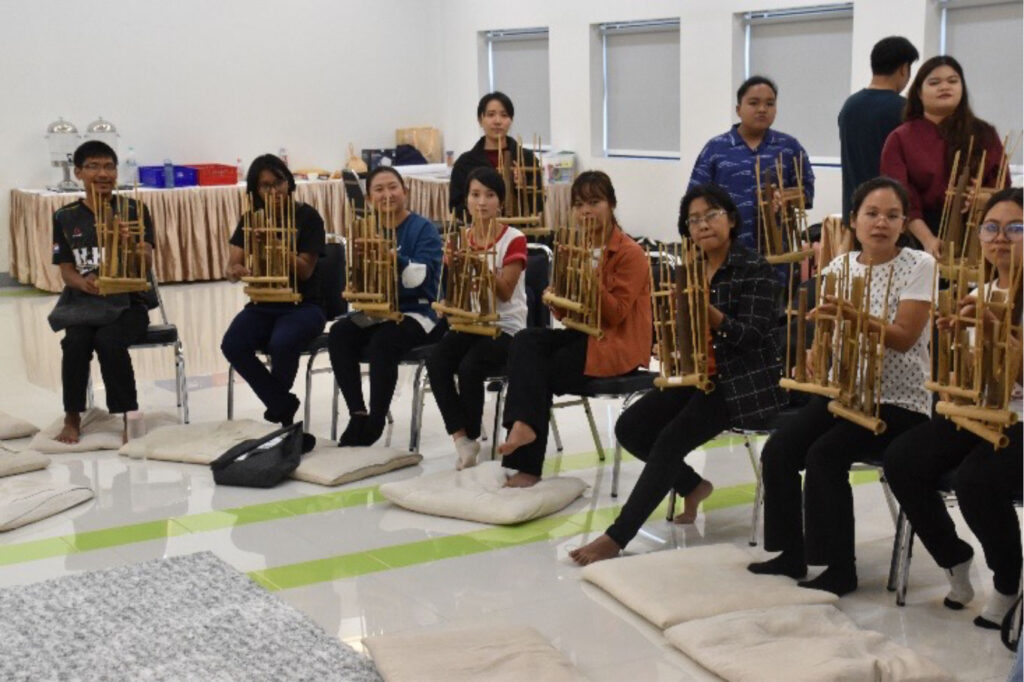
During the 1st ASEAN Joint High-Level Education Working Group Meeting on Migrant Children and Education, Ms. Duriya Amatavivat, then Deputy Permanent Secretary of the Ministry of Education Thailand stated, “The Thai government will continue to support all children in Thailand including those who are non-Thais to go to school,…..This meeting is an important step for both governments to take collective action to promote access to education and enhance quality of life for all children. This platform will strongly contribute to Thailand’s commitments towards SDG4 and other SDGs.”
The Training of Trainers for Engaged Social Service in a Borderless World may be a small step, but collaborators in this project hope to continue with their efforts, partnering with both government and civil society actors to collectively address the dire needs. Thailand holds a strategic and important role in supporting regional sustainability and has been providing invaluable services in supporting the livelihood of vulnerable groups in border towns. This training program attempted to add to such efforts while strengthening the research capacity of multiple units of Chulalongkorn University. Where global learning literacy is demanded by an uncertain world, Civic Engagement 4.0 continues to contribute.
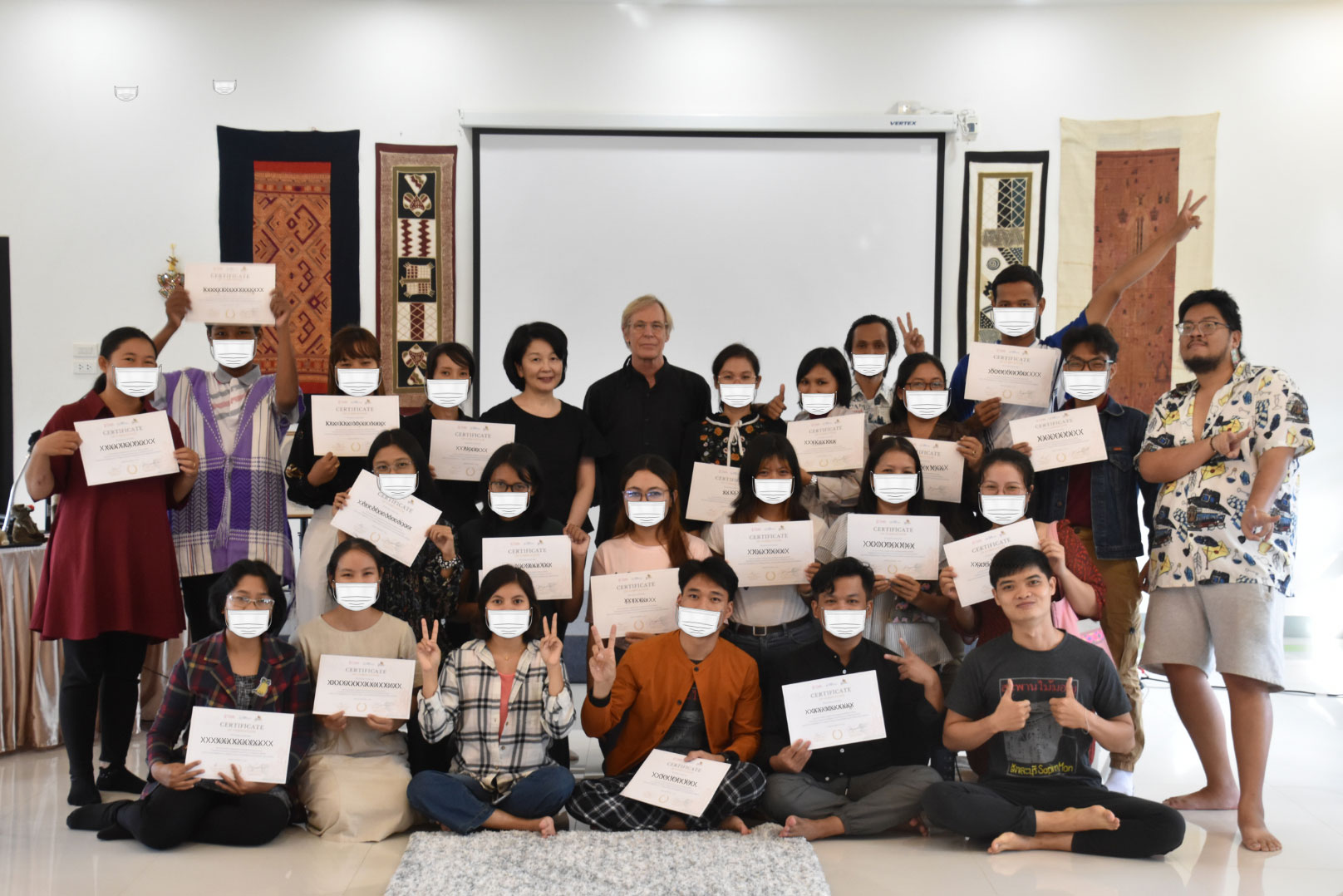
Testimony from Myanmar teachers
BY Office of International Affairs and Global Network, Chulalongkorn University
Others
Chula’s Communication Courses in Digital Era
Chulalongkorn University plans to overhaul communication arts’ curricula to remain relevant in today’s media industry and to draw more applicants. The existing courses will be adapted and updated while new courses will also be introduced.





